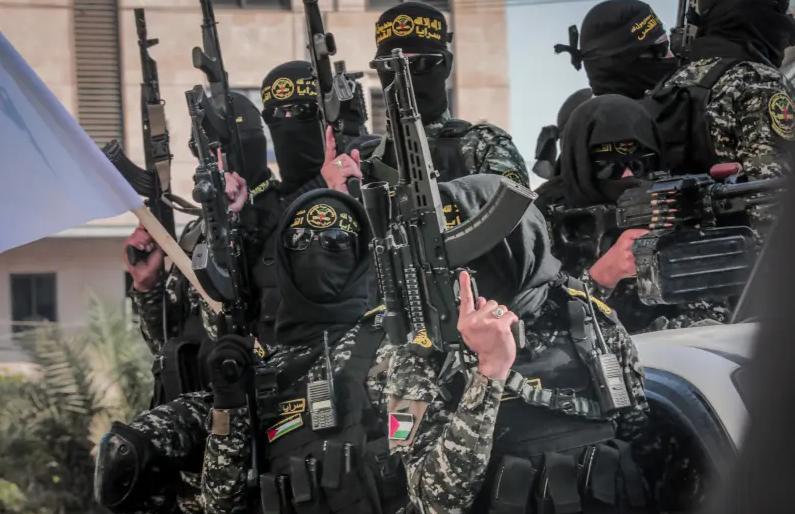
The Palestinian Islamic Jihad is a problem for Hamas
Islamic Jihad may have lost some of its top military commanders during the latest round of fighting with Israel, but its status as the second-largest armed group in the Gaza Strip after Hamas remains intact.
In fact, some Palestinians believe that each round of fighting with Israel props up Islamic Jihad’s standing as a dominant player not only in the Gaza Strip but in the West Bank as well.
In the past year, Islamic Jihad has managed to form several armed cells in the northern West Bank, specifically Nablus, Jenin and Tulkarm, making it a major actor in the Palestinian arena to the dismay of Hamas and other factions.
In the eyes of these Palestinians, the fact that Islamic Jihad fought alone during the most recent bombardments of Israel is testament to the group’s military capabilities and “steadfastness.” It has demonstrated that it can enter into war with Israel on its own, without having to rely on Hamas or other armed groups in the Gaza Strip, they say.
Each round of fighting with Israel that ends without the complete elimination of Islamic Jihad is seen by the organization and its supporters as another “victory,” regardless of the casualties and the material damage it incurs. Moreover, since it is impossible to wipe such a large organization off the map, the current conflict with Israel is likely to leave Jihad intact, despite the heavy price it has paid with the assassination of senior commanders of its “military council.”
The only unafraid ‘resistance’ faction
Islamic Jihad is now being praised by many Palestinians and Arabs as the only “resistance” faction that is not afraid to fire hundreds of rockets at Israel. On the other hand, most of those who are heaping praise on it are criticizing Hamas for sitting on the fence and refusing to be directly involved in the fighting.
Hamas has never been comfortable with the idea that another major armed group is functioning as a “state within a state” in the Gaza Strip. This discontent has often created tensions between the two Iranian-backed groups.
On a number of occasions, the tensions have erupted into violence when Hamas security forces interfered to stop Islamic Jihad members from firing rockets at Israel. It is vital for Hamas leaders to show that they are the sole rulers of the Gaza Strip, even if that means occasionally cracking down on their allies in Jihad.
To ease the tensions, Hamas and Islamic Jihad officials agreed to increase coordination between their groups regarding the fighting with Israel.
To avoid future misunderstandings, they decided to establish the so-called Joint Rooms Operation of the Palestinian Resistance Factions. The main goal of this body is to ensure that any decision on war or ceasefire with Israel is taken by consensus, rather than by a single group.
This was Hamas’s way of reminding Islamic Jihad and other groups that there is one kingpin in the Gaza Strip, and that is Hamas.
For now, Hamas and Islamic Jihad are keen on displaying a “united front” against Israel. The talk in Israel about Hamas’s refusal to join the latest round of fighting has prompted leaders of the two groups to come out against what they perceive as a “Zionist conspiracy” to drive a wedge between them. Hamas and Jihad leaders have gone to great lengths to deny reports in Israel about mounting tension between the two groups.
As part of their efforts to refute talk about tension, Hamas leader Ismail Haniyeh and Islamic Jihad Secretary-General Ziyad al-Nakhalah have been in almost daily phone contact since the beginning of the IDF operation in the Gaza Strip last Tuesday. The goal is to broadcast that the two groups are working in harmony and full coordination.
Yet, when the guns fall silent, Hamas will once again be reminded that it is no longer the unchallenged and absolute governing body in the Gaza Strip. Moreover, Hamas will once again be reminded that it has a problematic “roommate” in the Gaza Strip with whom it will have to live in the coming years and perhaps decades.
Islamic Jihad has become a problem not only for Israel but for Hamas too. It now remains to be seen how long Hamas is willing to put up with Jihad’s challenge to its authoritarian rule over the Gaza Strip.
Source: jpost





